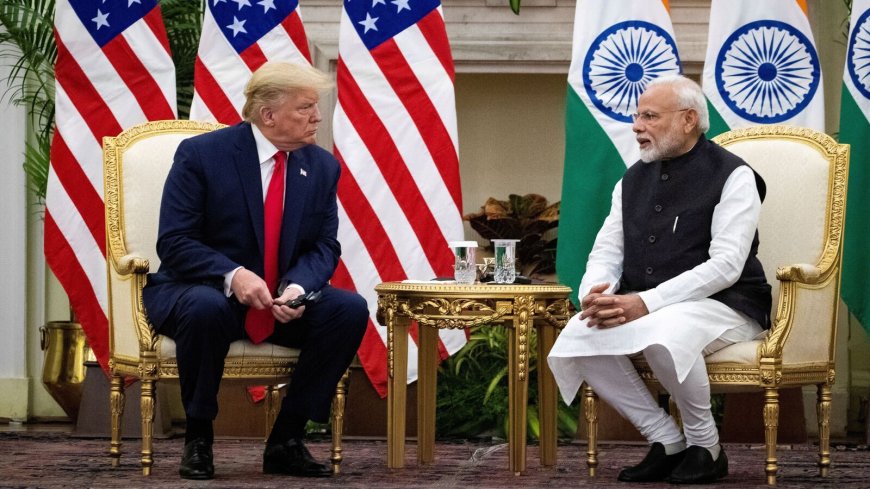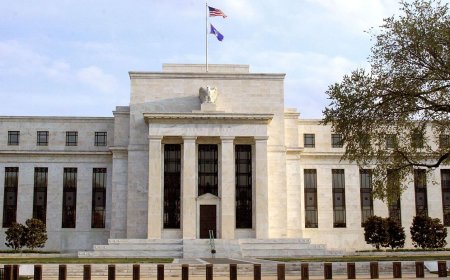India-US trade deal: What can the Indian stock market expect ahead of Trump's tariff pause deadline?
As Trump’s tariff pause deadline nears, India-US trade talks could shift market dynamics. Explore how this deal might impact Indian stocks, key sectors, and investor sentiment.

As the July 15 deadline for former US President Donald Trump's proposed tariff pause approaches, all eyes are on the evolving trade dynamics between India and the United States. With global economic stability hanging in the balance and Indian equity markets reacting to geopolitical signals, investors are closely watching for cues on whether a breakthrough trade deal could emerge — or if tensions may resurface.
Background: The Trump Tariff Pause
In an unexpected policy signal earlier this year, former President Donald Trump — a key contender for the US presidency in the upcoming elections — hinted at a pause on new tariffs against strategic allies, including India. The announcement was positioned as part of a larger effort to "rebalance" trade ties and create room for renewed economic dialogue with Indo-Pacific partners.
However, the pause is temporary and contingent on progress in bilateral talks. Trump’s advisory circle has suggested that unless concrete agreements are reached — particularly around tariff rationalisation and digital trade barriers — the pause may be lifted post-July 15, potentially triggering new levies on select Indian exports.
Key Areas of Negotiation
India and the US have been locked in multiple rounds of trade talks covering a range of issues. According to commerce ministry officials, major points include:
-
Tariff Reductions: On products like almonds, apples, medical devices, and motorcycles.
-
Digital Trade and Data Localisation: A sticking point, with the US pushing for freer cross-border data flows and India maintaining its data sovereignty stance.
-
E-commerce Regulations: India’s tightening FDI norms in the online retail space remain a concern for US tech giants like Amazon and Walmart.
-
Market Access for Services: India seeks greater mobility for its IT professionals and relaxation of visa restrictions.
The outcome of these negotiations will shape not only trade balances but also influence investor sentiment across sectors.
Market Sentiment and Sectoral Impact
The Indian stock market has so far responded cautiously to the evolving narrative. Benchmark indices like the Nifty 50 and Sensex have witnessed subdued volatility, with trade-related sectors showing sharper reactions.
1. IT & Tech Services:
Given India's dominance in software exports to the US, any improvement in visa policies or digital trade arrangements would benefit companies like TCS, Infosys, and Wipro.
2. Pharma:
Indian pharmaceutical exporters are hoping for fewer regulatory roadblocks in the US, particularly around generic drug approvals. Stocks like Sun Pharma and Dr. Reddy’s may gain if the deal reduces USFDA bottlenecks.
3. Automobiles & Agriculture:
Tariff reductions on Harley-Davidson motorcycles and Californian almonds are expected to be reciprocal, benefiting Indian exporters of auto components and agricultural goods. Watch out for Escorts Kubota, Hero MotoCorp, and agri-focused firms.
Expert Views
Rohit Srivastava, Chief Strategist at IndiaCharts, notes:
"The Indian market is pricing in a moderate probability of a deal. A positive outcome could act as a short-term catalyst, especially for IT and export-heavy sectors."
Anita Shah, Trade Policy Analyst at Gateway Partners, adds:
“Even if Trump doesn’t impose tariffs right away, a hard stance post-deadline may lead to volatility. Investors should prepare for a binary outcome — either a relief rally or a temporary risk-off environment.”
Global and Domestic Economic Context
The trade discussions come at a time when India is showing signs of resilient macroeconomic strength. GST collections remain robust, inflation is moderating, and the RBI has maintained a neutral stance on interest rates. Meanwhile, the US economy is navigating inflationary concerns and Fed rate pause debates.
Globally, investors are on edge amid the US-China tech war, EU elections, and oil price fluctuations. In such a backdrop, any clarity in the India-US trade corridor could bring stability to emerging markets.
Investor Outlook: What Lies Ahead?
As the July 15 tariff pause deadline approaches, market participants should keep the following in mind:
-
Volatility Spikes Likely: Expect heightened activity in F&O (futures & options) segments as traders hedge positions.
-
Focus on Export-oriented Stocks: IT, pharma, and textiles could outperform on favorable trade announcements.
-
Currency Watch: The rupee may strengthen if a deal boosts dollar inflows through trade and investment.
-
Bond Yields: Improved geopolitical relations may attract foreign institutional inflows into Indian debt markets, pushing yields lower.
However, uncertainty remains a key risk. Even if immediate tariffs are avoided, the rhetoric from Trump’s campaign trail could shape long-term trade policy.
With India-US relations at a pivotal juncture, the next few days will be critical for global investors and policymakers alike. While the markets remain cautiously optimistic, the real test will be whether negotiators can move beyond intent to concrete deliverables.
For Indian equities, a positive outcome could mean a breakout from current consolidation zones, but failure to secure a deal could see defensive sectors take the lead. Until then, strategic positioning and risk management remain the name of the game.
What's Your Reaction?
 Like
0
Like
0
 Dislike
0
Dislike
0
 Love
0
Love
0
 Funny
0
Funny
0
 Angry
0
Angry
0
 Sad
0
Sad
0
 Wow
0
Wow
0













































































